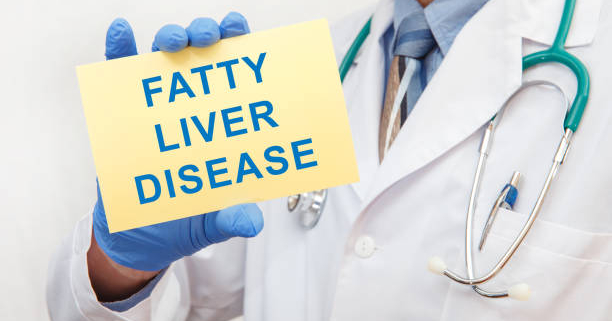Fatty Liver Disease, also known as hepatic steatosis, is characterized by an abnormal accumulation of fat in liver cells. This condition has become a global health concern, with its prevalence soaring due to sedentary lifestyles, unhealthy diets, and an obesity epidemic. There are two main types of Fatty Liver Disease: alcoholic liver disease (caused by excessive alcohol consumption) and nonalcoholic fatty liver disease (NAFLD), which is unrelated to alcohol intake.
Causes of Fatty Liver Disease
- Lifestyle Choices: Sedentary lifestyles and poor dietary habits are primary contributors to the rise of Fatty Liver Disease. Consuming high amounts of processed foods, sugary beverages, and saturated fats can overwhelm the liver’s ability to process and metabolize these substances.
- Obesity: The relationship between obesity and Fatty Liver Disease is undeniable. Excess body weight, especially around the abdominal area, increases the risk of fat accumulation in the liver.
- Genetic Factors: Some individuals may be genetically predisposed to Fatty Liver Disease, making them more susceptible even with a seemingly healthy lifestyle.
Symptoms of Fatty Liver Disease
One of the challenges with Fatty Liver Disease is its asymptomatic nature in the early stages.
Nevertheless, as the ailment advances, individuals may experience:
- Fatigue: A persistent feeling of tiredness can be a common symptom, often attributed to the liver’s compromised ability to function optimally.
- Abdominal Discomfort: Discomfort or pain in the upper right side of the abdomen may signal liver inflammation.
- Jaundice: In advanced stages, the skin and eyes may take on a yellowish hue due to impaired liver function.
- Unexplained Weight Loss: Sudden and unexplained weight loss can indicate severe liver damage.
Diagnosing Fatty Liver Disease
Early detection of Fatty Liver Disease is crucial for effective management. Diagnosis typically involves a combination of:
- Blood Tests: Liver function tests and blood lipid profiles help assess the liver’s health and lipid metabolism.
- Imaging Studies: Ultrasound, CT scans, and MRI scans provide detailed images of the liver, aiding in the identification of fat accumulation and liver damage.
- Liver Biopsy: In some cases, a small tissue sample from the liver may be extracted for closer examination under a microscope.
- FibroScan: A non-invasive alternative to liver biopsy, FibroScan measures liver stiffness, providing insights into the degree of fibrosis.
Treatment for Fatty Liver Disease
While there is no one-size-fits-all approach to treating Fatty Liver Disease, lifestyle modifications form the cornerstone of management. Here’s a holistic view of potential treatment strategies:
- Dietary Changes: Adopting a balanced and nutritious diet is paramount. Emphasize whole foods, fruits, vegetables, and lean proteins while reducing the intake of processed foods, sugars, and saturated fats.
- Weight Management: Achieving and maintaining a healthy weight through regular exercise and portion control can significantly improve liver health.
- Regular Exercise: Regular physical activity not only aids in weight management but also helps reduce insulin resistance, a key factor in Fatty Liver Disease.
- Medications: In some cases, medications may be prescribed to manage underlying conditions such as diabetes, high blood pressure, or high cholesterol.
- Supplements: Certain supplements, such as vitamin E and omega-3 fatty acids, have shown promise in improving liver health.
The Human Side of Fatty Liver Disease
Beyond the medical intricacies, Fatty Liver Disease touches lives in profound ways. Individuals grappling with this condition face emotional and social challenges. Support groups, counseling, and open conversations are invaluable in navigating the emotional landscape of chronic illness.
Conclusion
Fatty Liver Disease is not just a medical condition; it’s a wake-up call to reassess our lifestyles and prioritize our health. By understanding the causes, recognizing symptoms, seeking timely diagnosis, and adopting a multifaceted approach to treatment, we can empower ourselves and others to mitigate the impact of this prevalent and often underestimated condition.
In this journey towards liver health, finding the right medical partner is crucial. Ayushman Hospital stands as a beacon of hope and expertise in the field of liver care. Their commitment to patient-centric care and state-of-the-art facilities make them a trusted ally in the battle against Fatty Liver Disease.




